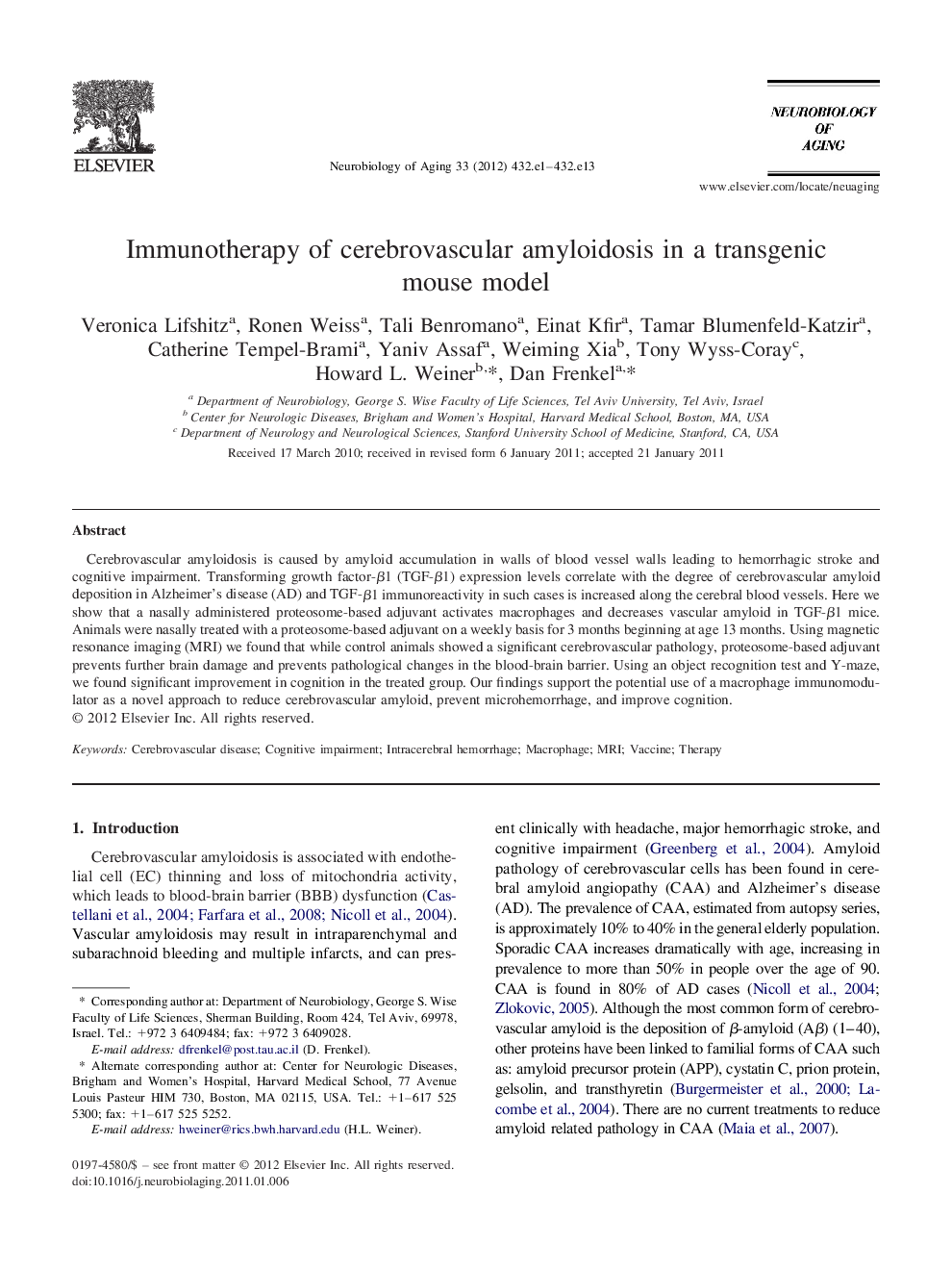| Article ID | Journal | Published Year | Pages | File Type |
|---|---|---|---|---|
| 6810048 | Neurobiology of Aging | 2012 | 13 Pages |
Abstract
Cerebrovascular amyloidosis is caused by amyloid accumulation in walls of blood vessel walls leading to hemorrhagic stroke and cognitive impairment. Transforming growth factor-β1 (TGF-β1) expression levels correlate with the degree of cerebrovascular amyloid deposition in Alzheimer's disease (AD) and TGF-β1 immunoreactivity in such cases is increased along the cerebral blood vessels. Here we show that a nasally administered proteosome-based adjuvant activates macrophages and decreases vascular amyloid in TGF-β1 mice. Animals were nasally treated with a proteosome-based adjuvant on a weekly basis for 3 months beginning at age 13 months. Using magnetic resonance imaging (MRI) we found that while control animals showed a significant cerebrovascular pathology, proteosome-based adjuvant prevents further brain damage and prevents pathological changes in the blood-brain barrier. Using an object recognition test and Y-maze, we found significant improvement in cognition in the treated group. Our findings support the potential use of a macrophage immunomodulator as a novel approach to reduce cerebrovascular amyloid, prevent microhemorrhage, and improve cognition.
Keywords
Related Topics
Life Sciences
Biochemistry, Genetics and Molecular Biology
Ageing
Authors
Veronica Lifshitz, Ronen Weiss, Tali Benromano, Einat Kfir, Tamar Blumenfeld-Katzir, Catherine Tempel-Brami, Yaniv Assaf, Weiming Xia, Tony Wyss-Coray, Howard L. Weiner, Dan Frenkel,
